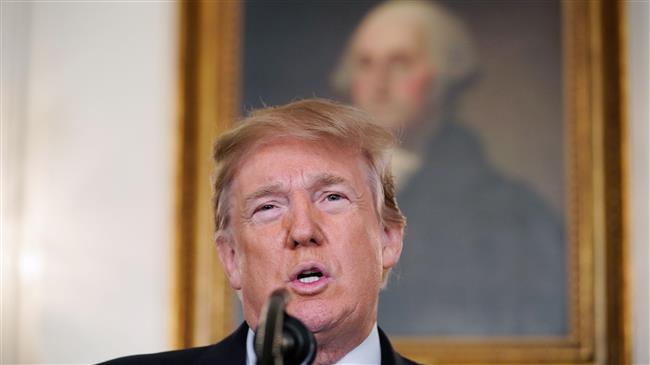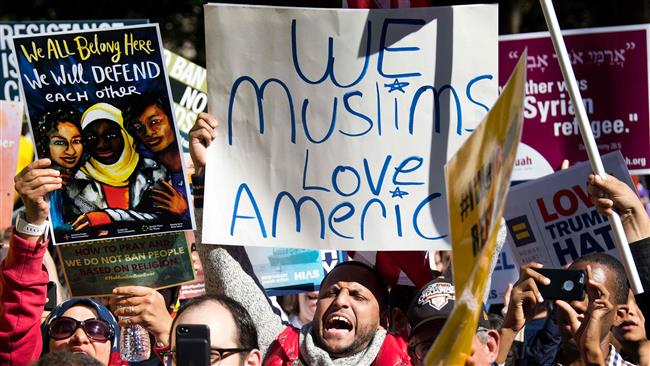US court says Trump travel ban discriminates against Muslims
A US federal appeals court has ruled that President Donald Trump's travel ban targeting people from six Muslim-majority countries violates the American Constitution by discriminating on the basis of religion, another legal setback for the policy.
In an extraordinary ruling on Thursday, the 4th Circuit US Court of Appeals, based in Richmond, Virginia, said Thursday the Republican president's own words demonstrated that bias against Muslims was the basis of the policy.
It was the second time a federal appeals court ruled against Trump’s latest travel ban, which is the third version of a series of travel restrictions that the president has issued since taking office in January 2017.
“The government’s proffered rationale for the proclamation lies at odds with the statements of the president himself,” Chief Justice Roger Gregory wrote.
“Plaintiffs here do not just plausibly allege with particularity that the proclamation’s purpose is driven by anti-Muslim bias, they offer undisputed evidence of such bias: the words of the president,” he wrote.
The court also found that Trump had expressed “what any reasonable observer could view as general anti-Muslim bias.”
In addition to statements from the campaign trail, the opinion cited Trump’s retweets of anti-Muslim videos posted by a British far-right group in November as well as this tweet from August:
Study what General Pershing of the United States did to terrorists when caught. There was no more Radical Islamic Terror for 35 years!
— Donald J. Trump (@realDonaldTrump) August 17, 2017
While the president could have “removed the taint of his prior troubling statements,” he hasn’t, the court said.
“In fact, instead of taking any actions to cure the ‘taint’ that we found infected [the second executive order laying out a travel ban], President Trump continued to disparage Muslims and the Islamic faith.”
The ruling, however, has mostly a symbolic impact because of a case before the US Supreme Court.
The US Supreme Court has allowed the ban, put in place by Trump with a presidential proclamation in September, to go into effect while litigation challenging it continues.The justices are due in April to hear arguments over the ban and issue a ruling by the end of June.
The ruling means the Trump administration can fully enforce its entrance restrictions on most citizens of Iran, Libya, Syria, Yemen, Somalia, Chad and North Korea, along with some groups of people from Venezuela.
Before the Supreme Court’s decision to temporarily allow the Trump travel ban to be implemented, two federal judges in Maryland and Hawaii had blocked implementation of the travel ban.
In December, the US Court of Appeals for the 9th Circuit upheld the Hawaii ruling, although it said it would allow the administration to enforce the ban on travelers without close US ties, such as relatives.
In early December, the high court had lifted the freeze on Trump’s ban, issued by the judges in Hawaii and Maryland, and allowed the ban to fully take effect while the legal challenges continue and await final decision by the Supreme Court.
Suicides among Israeli forces surge amid Gaza war
Gen. Soleimani turned threats into opportunities and fortified resistance axis
Houthi: General Soleimani thwarted US conspiracies in West Asia
Islamic Jihad prevents Israeli captive from taking own life
Pezeshkian: We will continue path of Gen. Soleimani with power
Israel forces make incursion into Lebanese town, torch homes
Israeli settlers raid al-Aqsa Mosque amid restrictions on Muslims
President Deby: French troops will leave Chad by end of January














 This makes it easy to access the Press TV website
This makes it easy to access the Press TV website